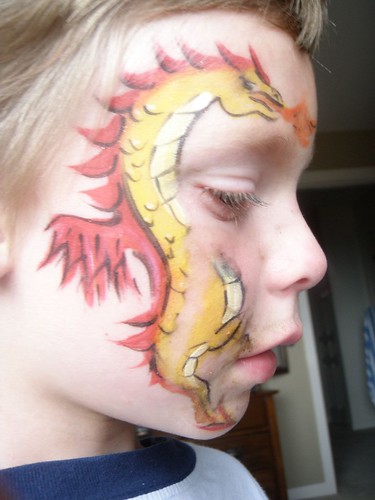
Every child grows at a different rate. Some mature fast, some slow. Some run fast while others are still coordinating one foot in front of the other. Some read whole paragraphs in books without pictures while others pick out words one finger at a time. Each to their own.
And so it goes with temperament, behaviour, reaction, response ... all the emotional brain chemistry that goes into making a personality and ends up as a packaged human being. Some children get it quickly, that there are certain norms of behaviour required for living easily in society. Others struggle.
We have a struggler.
My Wee Guy has a strong sense of justice, and, as with a lot of little children, it centres around himself. "Why does it always happen to me?" is a frequent wail, as he battles against another wrong. And oh boy, does he battle.
Though lately I've noticed he's quicker to reach tears at home than prolong the fight. Instead of a whole day/evening of stubborn illogical shouting he will now burst into tears ... and it will be over. Resignation. Recognition of that which cannot be changed. He seems to realise the futility of his actions against squeaky beans for dinner, or "no, we're not going to x, y or z", and the tears splash down his cheeks. Is he finally accepting the finality of, "because I say so"? Does he at last understand that he is the kid and we, the adults, usually have the final say in matters of safety, nutrition, homework ...?
Neufeld and Maté talk a lot about registering futility in their book, Hold On To Your Kids, describing it as essential to adaptive learning.
"Not until we accept that what we have been trying to do cannot be done and fully experience the disappointment and sadness that follow can we move on with our lives."At one point in our quest to understand behavioural issues in school, we were told that the Wee Guy needed to appreciate futility before he moving forward. Neufeld and Maté write about moving from "mad to sad", from frustration to acceptance that it's not working, as a key step in child development. A child needs to understand that not everything works, and to accept this before learning how to cope.
Much as I love his feistiness and his stubborn belief in being right, it doesn't equate to an easy ride - at home, at school, with friends. Much as I love this new vulnerability in him, because maybe just maybe he's ready to learn how to share life with others, it also saddens me. Does he really need to know how futile life is? Accepting futility means surrendering invincibility. It means facing up to not being able to do everything, not thinking you can conquer the world in that lovely way kids believe in themselves. Yes, it means a step closer to being adult, but with all the questioning, second-guessing, no-you-can't stifling of creativity that being a grown-up entails.
Who would wish self-doubt on their child?
